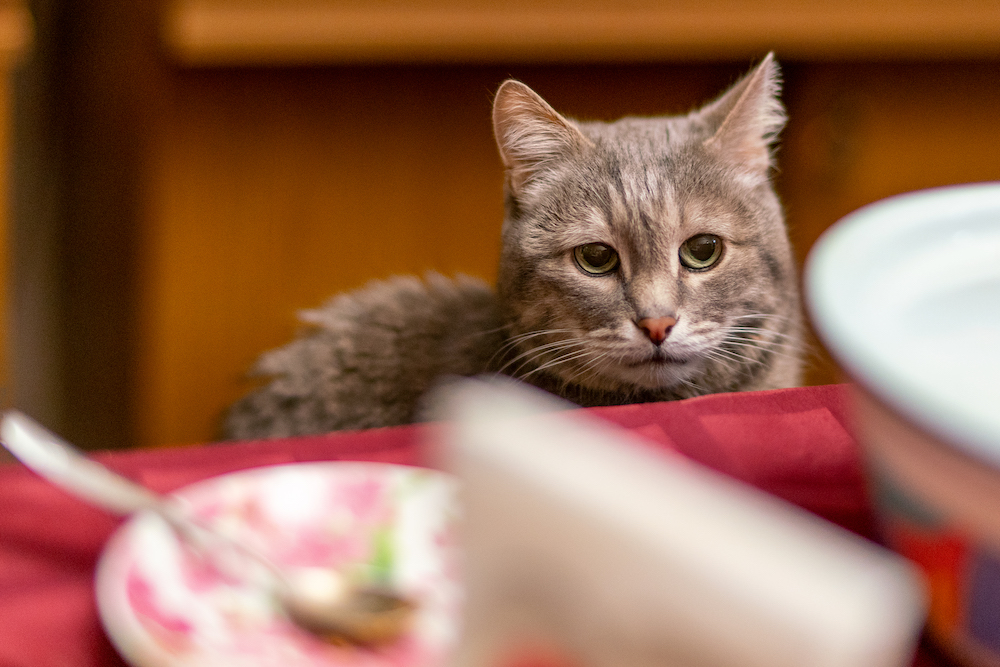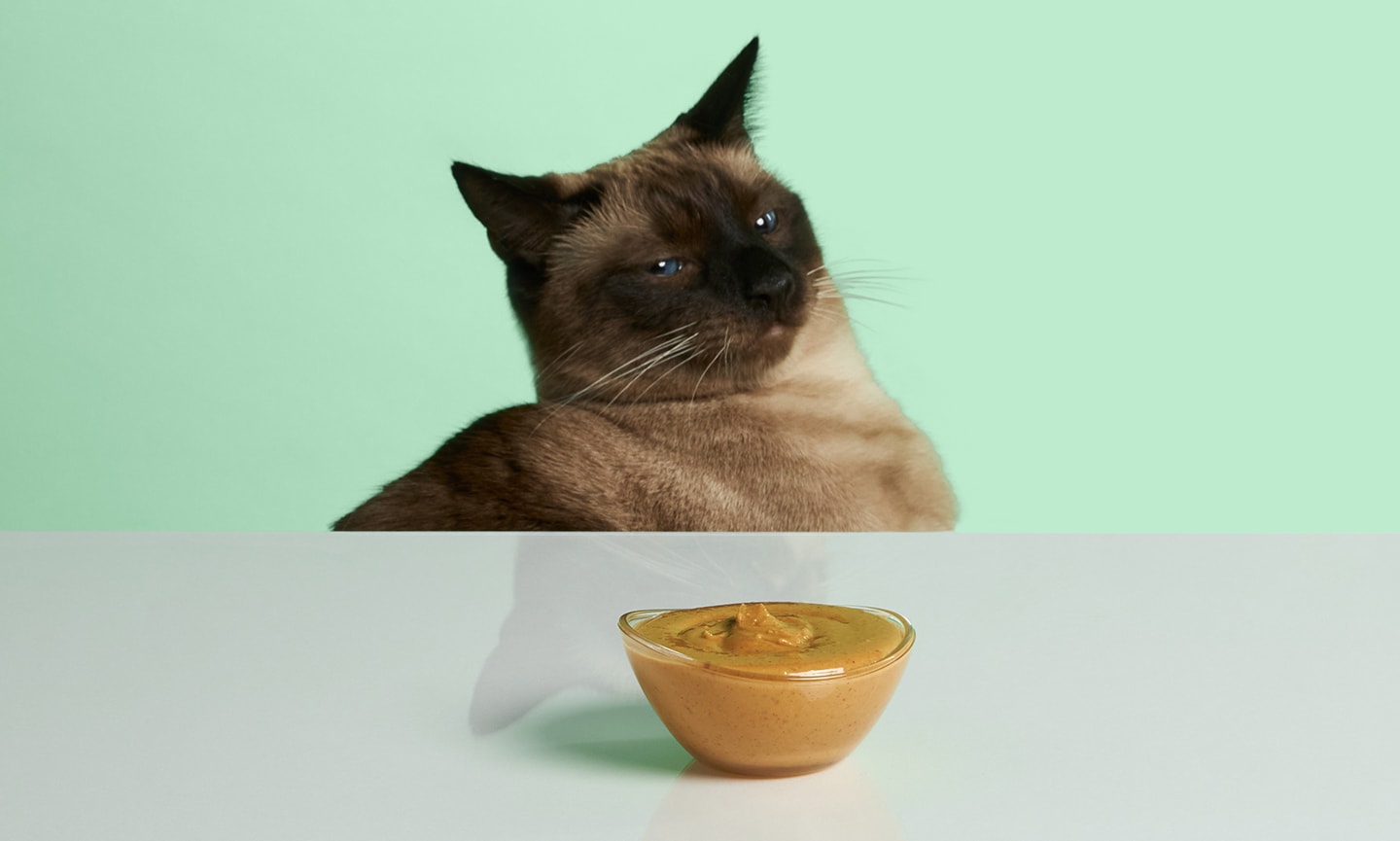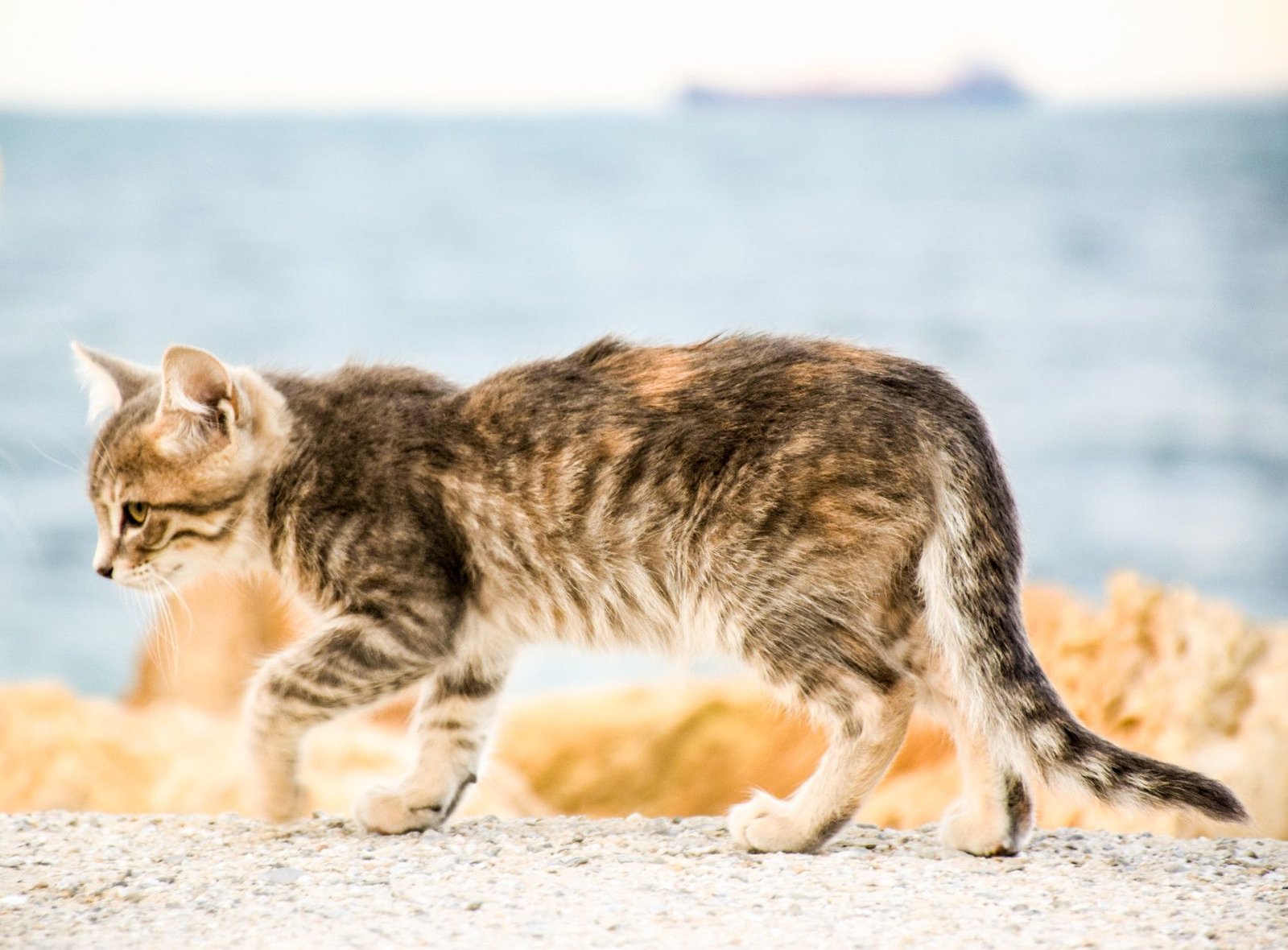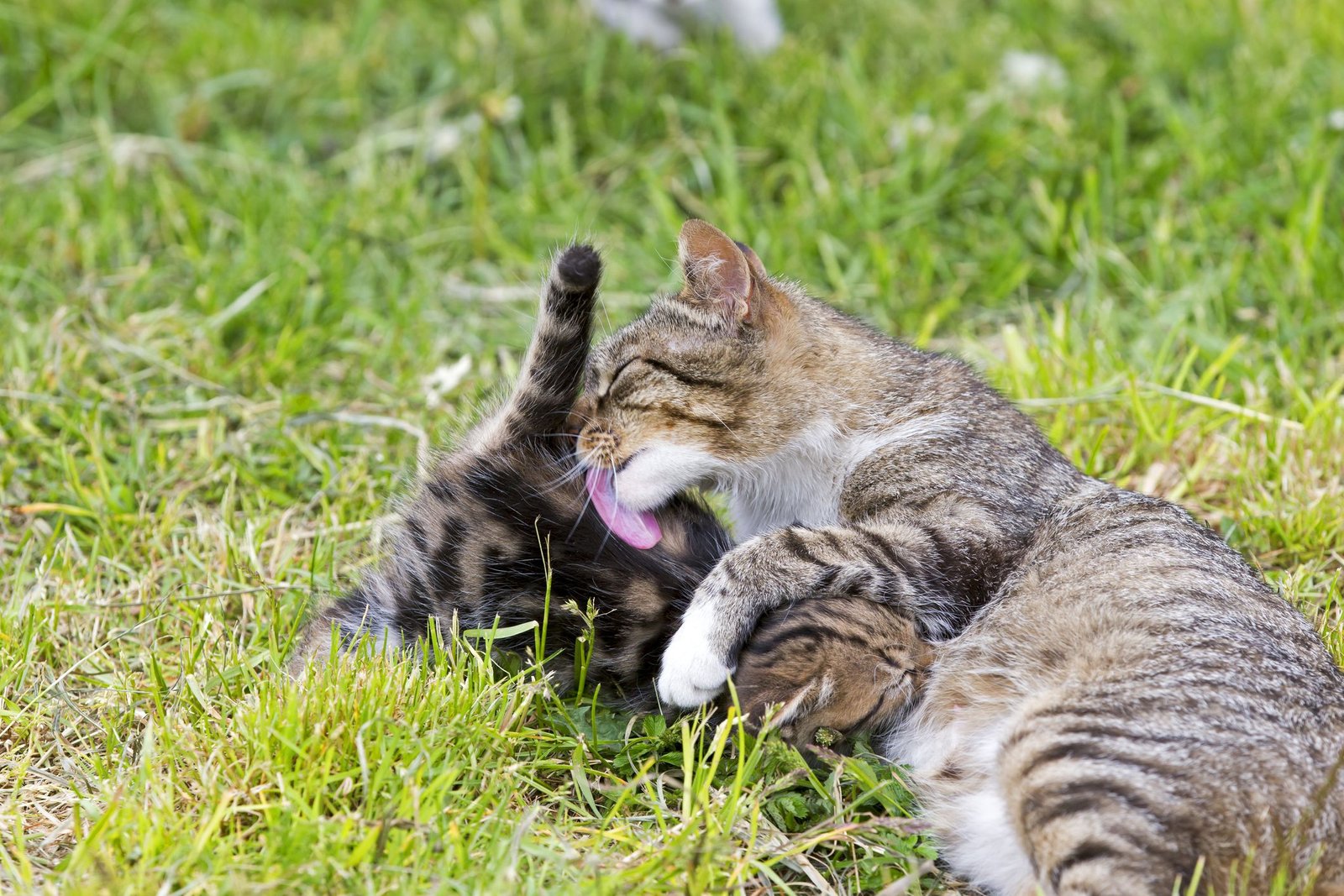Cats should not eat peanut butter due to the risk of choking and potential digestive issues. Although peanut butter is safe for humans, it does not provide nutritional benefits for cats and can cause gastrointestinal upset for some felines.
Additionally, peanut butter often contains artificial sweeteners like xylitol, which is toxic to cats. Therefore, it is best to avoid feeding your cat peanut butter and provide them with cat-friendly treats that meet their dietary needs.

Can Cats Safely Eat Peanut Butter?
Peanut butter is a beloved treat for many humans, but can cats safely indulge in this creamy delight, too? This article will explore the potential risks and benefits of feeding peanut butter to our feline friends. So, let’s dive in and find out if cats can safely eat peanut butter or if it’s best left for human consumption.
Overview Of Peanut Butter
Peanut butter is a paste made from ground, roasted peanuts. It is a popular spread enjoyed by people of all ages and is commonly found in pantries worldwide. Rich in vitamins, healthy fats, and protein, peanut butter is often touted for its nutritional value.
Cats And Potential Risks Of Eating Peanut Butter
While peanut butter may be a delicious treat, it can pose certain risks to our feline companions. Here are a few considerations to keep in mind:
- Peanut butter contains high fat levels, which can be difficult for cats to digest correctly. Excessive consumption of fatty foods can lead to stomach upset and even pancreatitis in cats, a potentially severe condition.
- Some brands of peanut butter contain additional ingredients, such as xylitol, a toxic cat sweetener. It’s crucial to read labels carefully and avoid any peanut butter that contains xylitol.
- Peanut butter may also contain additives like salt, which can harm cats. Cats have different dietary requirements than humans, and excess salt intake can lead to electrolyte imbalances and other health issues.
Benefits And Drawbacks Of Feeding Cats Peanut Butter
While it’s essential to understand the potential risks, there can be some benefits to feeding cats small amounts of peanut butter as an occasional treat. Here are a few points to consider:
| Benefits | Drawbacks |
|---|---|
|
|
In conclusion, while cats can technically eat peanut butter, it is crucial to do so in moderation and with caution. The potential health risks, such as digestive upset, pancreatitis, and harmful additives, should be considered before introducing peanut butter into your cat’s diet. It is always best to consult your veterinarian for personalized advice regarding your cat’s diet and any potential threats.
:max_bytes(150000):strip_icc()/can-cats-eat-peanut-butter-76f6b84306704b79ae41e45d8aff59be.png)
Alternatives To Peanut Butter For Cats
Cats can eat peanut butter in moderation, but it contains high levels of fat and salt, which can harm their health. Instead, consider offering cats alternatives like pumpkin puree or coconut oil, which are safe and nutritious options.
Safe And Healthy Treats For Cats
When it comes to treating our feline friends, it’s essential to choose safe and healthy options. While cats cannot digest certain foods that we humans enjoy, they still deserve a special treat from time to time. If you’re looking for alternatives to peanut butter for cats, several options can be tasty and safe. Considering a cat’s dietary needs and preferences before introducing new food is essential. Here are some safe and healthy treats for your furry friend:
1. Cooked Fish: Fish is an excellent source of protein and healthy cat fats. Cooked fish, such as salmon or tuna, can be delicious and nutritious. Remember to remove any bones and seasonings before serving it to your cat.
2. Cooked Chicken: Lean, boneless, and skinless chicken is another excellent option for a cat-friendly treat. Whether boiled or baked, cooked chicken provides enough protein and can be easily shredded into small pieces for your cat to enjoy.
3. Cat Treats: Commercially available cat treats can be convenient for rewarding your feline friend. Look for treats specifically formulated for cats, as they often contain safe and beneficial ingredients for feline consumption. Always check the ingredient list to ensure it has no harmful additives or preservatives.
Other Nut Butters That Cats Can Eat
While peanut butter may not be suitable for cats due to its potential allergenic properties and high-fat content, there are other nut butter that cats can safely enjoy in moderation. These nut butter can give your cat a different taste and texture experience. Here are some options you can consider:
1. Almond Butter: Almond butter is a creamy and nutritious alternative to peanut butter. It contains healthy fats, vitamin E, and magnesium. However, it’s important to note that cats should only consume a small amount of almond butter, as too much can cause digestive issues.
2. Cashew Butter: Cashew butter is another nut butter option that cats can enjoy. It is lower in fat than peanut butter and provides a good source of essential minerals. As with almond butter, only offer a small amount of cashew butter to prevent gastrointestinal upset.
3. Pumpkin Seed Butter: Pumpkin seed butter is a unique alternative that offers a mild and nutty flavour. It is packed with nutrients, such as omega-3 fatty acids and antioxidants. However, ensure that the butter you choose is explicitly made for feline consumption and contains no harmful additives.
Tips For Introducing New Foods To Cats
When introducing new foods to your cat, it’s crucial to do so gradually to avoid upsetting their digestive system. Here are some tips to keep in mind:
- Start with small quantities. Begin by offering a tiny amount of the new food as a treat. Monitor your cat for any adverse reactions or digestive issues.
- Observe for allergies: Pay attention to any signs of allergies, such as excessive scratching, skin irritation, or changes in behaviour. If you notice any of these symptoms, discontinue feeding the new food.
- Mix with familiar food: Gradually mix the new food with your cat’s diet over several days to ensure a smooth transition. This will help prevent stomach upset and encourage acceptance of the fresh food.
- Consult with a veterinarian. If you have concerns about introducing new foods to your cat or need guidance on portion sizes, consult your veterinarian. They can provide valuable insights based on your cat’s specific dietary needs.
Remember, every cat is unique, and what works for one may not work for another. Paying attention to your cat’s preferences and dietary requirements when choosing treats or introducing new foods is crucial.

Frequently Asked Questions For Can Cats Eat Peanut Butter?
Can Cats Eat Peanut Butter?
Yes, cats can eat peanut butter but in moderation. Peanut butter is high in fat and calories, so too much can lead to weight gain and digestive issues. It’s also important to check the ingredient list for artificial sweeteners like xylitol, as they are toxic to cats.
Conclusion
Peanut butter may be a delicious human treat, but should cats eat it too? While cats can safely consume small amounts of peanut butter, it is not essential to their diet. It is important to remember that many peanut butter brands contain additives like xylitol, which can be toxic to cats.
Additionally, some cats may have allergies to peanuts. Ultimately, providing your cat with a balanced and appropriate diet is the key to keeping them healthy and happy.


